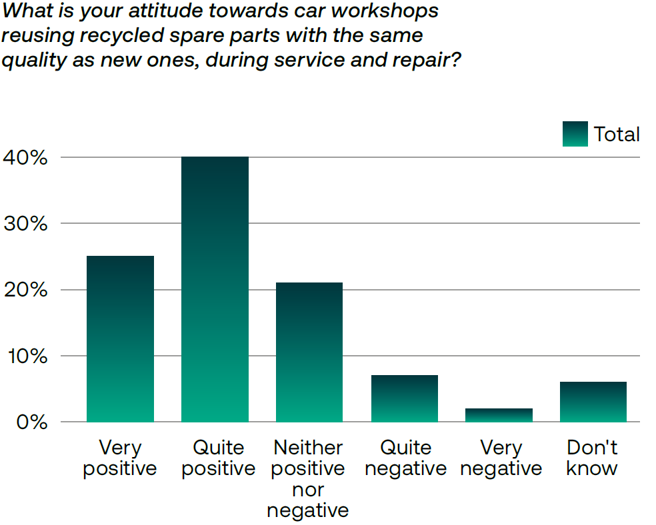MEKO has practiced sustainability principles for over 50 years by repairing and extending the life of car- related products. With the industry now facing increasing sustainability demands and scarce resources, the transition to a circular society is imperative. Working with stakeholders and industry partners, MEKO promotes circular solutions and sustainable practices across the aftermarket in Northern Europe. Using remanufactured spare parts has become a key focus, emphasizing the need for greater awareness and proactive initiatives.
Data plays an important role
Louise Wohrne emphasizes the importance of data in demonstrating the impact of circular practices and encouraging customers to make more sustainable choices. Additionally, international initiatives in the automotive aftermarket sector are focusing on promoting spare parts that are fully remanufactured or contain recycled materials. One of these organizations is FAAS, of which MEKO is a member, with Louise Wohrne serving as its chair.
“Raising awareness includes educating consumers about the benefits of remanufactured parts and the environmental impact of their choices. When customers understand that choosing remanufactured parts reduces waste, conserves resources, and minimizes carbon emissions—while performing as well as new ones — they are more likely to choose these sustainable options,” she explains.
Need for more progress
While the industry has made progress, Louise emphasizes that more focused efforts are still needed. “This includes all industries, and the automotive industry has a very important role to play as it is resource intense. MEKO already offers products that are remanufactured as well as renting products to consumers and specialized tools to workshops,” she says.
Louise adds that the industry must get better at relying on data as proof that this makes a difference, as well as offering this in a proactive way. The industry is already doing a lot in this field, so it is a lot about showing the data, nudging, and communicating this to consumers, allowing them to make informed decisions.
In practice, driving behavioral change through awareness often requires an array of targeted strategies. These can include informative campaigns, transparent communication about product lifecycle impacts. Offering tangible data on the environmental benefits of remanufactured parts can powerfully influence consumer decisions, Louise Wohrne says.
“One main challenge, just like when developing any business model, is to make it viable and profitable. Perhaps one of the biggest questions for a company with a linear business model, is whether to incorporate these fundamental changes and go all the way. We are certain that there is a future for this type of business and are committed to promoting circular initiatives. In addition to the aftermarket, there are also great examples of companies in other sectors that challenge the industry with a circular approach, and, by that, have changed the market dynamics totally.”







